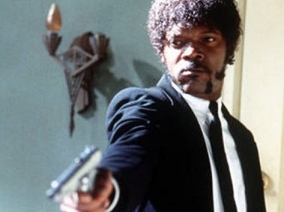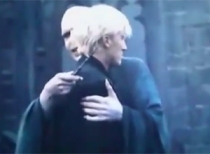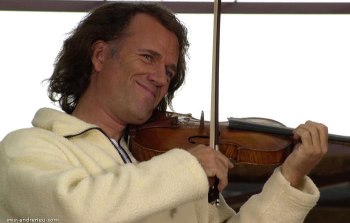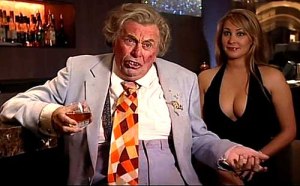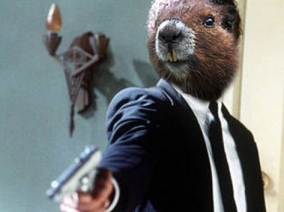We are super-keen to have the amazingly witty Bonnie provide us with this first guest post!
Samuel Beckett once said that nothing is funnier than unhappiness.
That should serve as a decent enough segue into how unhappy I am about certain musical adaptations of plays, and how I hope it will be an appropriately amusing and ranty guest blog for Semantic Marmot which, you will know as regular readers, is all about music, random images, and very occasionally, marmots.
If you know much about theatre from the 19th and 20th century and some of the bold statements therein, you enter a world of protest that ranges from fierce and shocking, to subtle and bittersweet, with a few bland imitators thrown in the cracks.
Frank Wedekind’s Frühlings Erwachen, better known to us as Spring Awakening, was one such fierce production which made clear the attitudes of the bourgeois community, in particular towards sex and education. The play is not an epic or a satire, but rather a gritty and morbid tale surrounding a few school children featuring masturbation, underage sex, abortion, rape and suicide. Not quite one for those fans of Legally Blonde, or the fifth instalment of the Wizard of Oz.
Also unlike those, Spring Awakening has been banned and censored many times since its publication. In the play, silence is so important to the storyline it is a character all on its own, like NYC in Sex and the City, only less idiotic. The silence of the adults, where their words would have saved lives, is of great importance. The unknown and the unknowing are key where children begin to live and behave dangerously as they are left to their own devices, ultimately leading to tragedy. The key thing to take away is how this silence is a catalyst to destruction by sexuality, rather than the more modern dangers of rock music and celebrity fetish.
We must relish the awkward silences in response to those metaphysical questions where we all know the answer, but cannot say it, and even if we did it would not alter the fate of the characters. Similar to our friends at the cinema yelling at the half naked blonde girl to ‘watch out for the killer lurking in the basement’, the movie would carry on, the girl would be stabbed, no tragedy would be averted. But when the tragedy is the point of the play or the cheap slasher movie, we just have to embrace that.
So why, for the love of god, did someone feel the need to make this a rock musical?
I get it. Rock music, as I’ve said, is associated with youth rebellion, so that tired trope can easily be applied. But with a real understanding of Wedekind’s statement, the deafening quiet realism is enough to stir an audience with any real empathy or artistic appreciation of the words said, and unsaid. Adding the rock and roll musical element means everything will become over-explored, over-dramatic and dare I say it, dumbed down.
This isn’t to say that tragic theatrical plays cannot make great musicals, just look at Les Miserables. Most of the good ones actually do, even those more abrupt shocking pieces. But the difference is often how expertly they are put together, with the synergy of music and storyline expressing the characters as they were presented by the playwright (at the risk of intentional fallacy) and also how the production is later portrayed to an audience who is unfamiliar with the original text.
Büchner’s Woyzeck is a play which provocatively invokes the dehumanising element of war on a young man’s life and mental state. The brutal ‘working class tragedy’ was then made into an intense opera by Alban Berg, who himself was exposed heavily to the military. Berg was able to use music to present an appropriate and original avant garde production, free of classic techniques such as arias, highlighting individual characters with unique leitmotifs, while the expression of madness and alienation is amplified with the use of atonal music.
Candide, originally penned by Voltaire as an ironic statement about optimism and human misery, was transformed equally well into a musical by the great Leonard Bernstein, with help from many others with the libretto including Lillian Hellman and Stephen Sondheim. The production perfectly and uniquely mimics the attitude of the main character from Voltaire’s text, who frequently insists that happiness will always come, the world is truly good and everything is as it should be, all while falling witness (and victim) to violent crime, rape, theft, war and heartache.
All these scenes are played out on stage as they are in the original novella with the enhanced inclusion of ridiculously lighthearted and optimistic music to achieve the ironic juxtaposition that Voltaire intended. Think Gavroche’s death in Les Mis accompanied by some Mary Poppins tunes and you’ve got something along the same lines. A difficult thing to swallow and not necessarily appreciated at first, but critics soon came to realise its value.
Then we come back to Spring Awakening, doomed to become a dumbed down rock musical with cliche melodies and characters dressed as punks and rebels, portrayed by middle class players who delight in oozing sex appeal and perfecting their belt voice. The onus is no longer on the characters as good decent school children corrupted by ignorance, but rather a door to a semi-erotic playground where sex may as well be commonplace. The play’s point is that it’s disturbing – not just because it’s focus is taboo, but because it is explored by the young who know nothing of them.
Children having sex, children dying, children having abortions, children who are not impoverished or unable to attend school but who are simply misguided. This is not sexy. This is not the stuff of rock and roll and the underprivileged or wannabe models. This is not, as explained in the musical synopsis, about ‘the general trials, tribulations and exhilaration’ of the teen years.
The young girl, Wendla – who doesn’t even know where babies come from – falls pregnant, is forced to have an abortion and dies, yet she has to also be described as ‘beautiful’ meaning her sexual encounter and subsequent tragedy are almost purely a result of her looks, rather than her ignorance. Melchior, the confused and angry male protagonist, is apparently ‘brilliant and fearless’. His friend Moritz is only ‘distracted by puberty’ and can’t concentrate on anything, which actually means he is plagued by constant sexual urges, he does badly at schoolwork, leaving him alienated and suicidal.
The idea that the characters are considered beautiful and fearless is an insult to Wedekind’s expressionism, as it seem to ignore the real subtext. Many of those performing it prefer to trivialise the issues and instead try to make it look sexually provocative in between breaks to discuss the latest trends and instagramming their latte. They truly believe that Spring Awakening ‘celebrates the unforgettable journey from youth to adulthood with a power, poignancy, and passion that you will never forget.’ This almost makes me want to hurl myself into the nearest freezing river.
There’s a strong irony however, in how these middle class twenty somethings try to provoke audiences, as the world is now far too obsessed with sexuality. Lower classes are now potentially more at risk of ignorance with fewer opportunities for decent education, while middle class kids know too much about sex with exposure to mainstream media and societal pressures to be sexually mature at a younger age.
So, to those paying attention, the existence of this musical (at least how I have seen it presented by theatre groups – I’m hoping some might do it justice) makes a strong statement on how societal norms regarding sexuality and the young have changed, with sex now so openly discussed and practiced that whole new problems exist.
P.S. Something about marmots.

